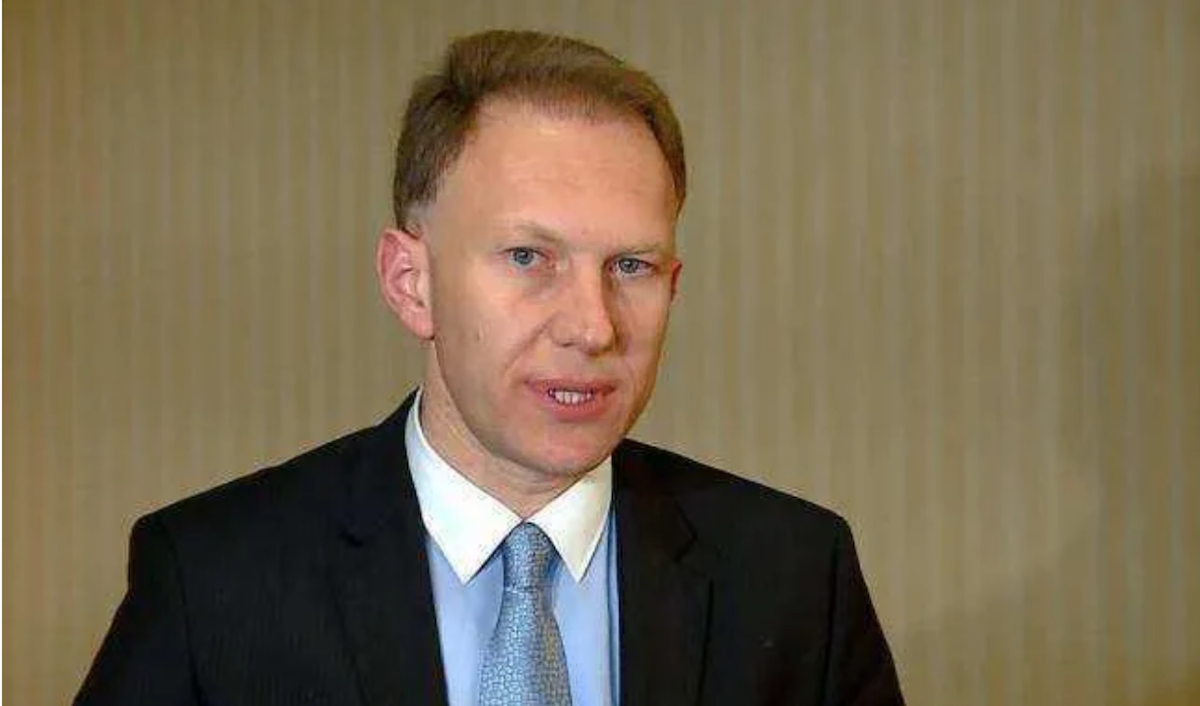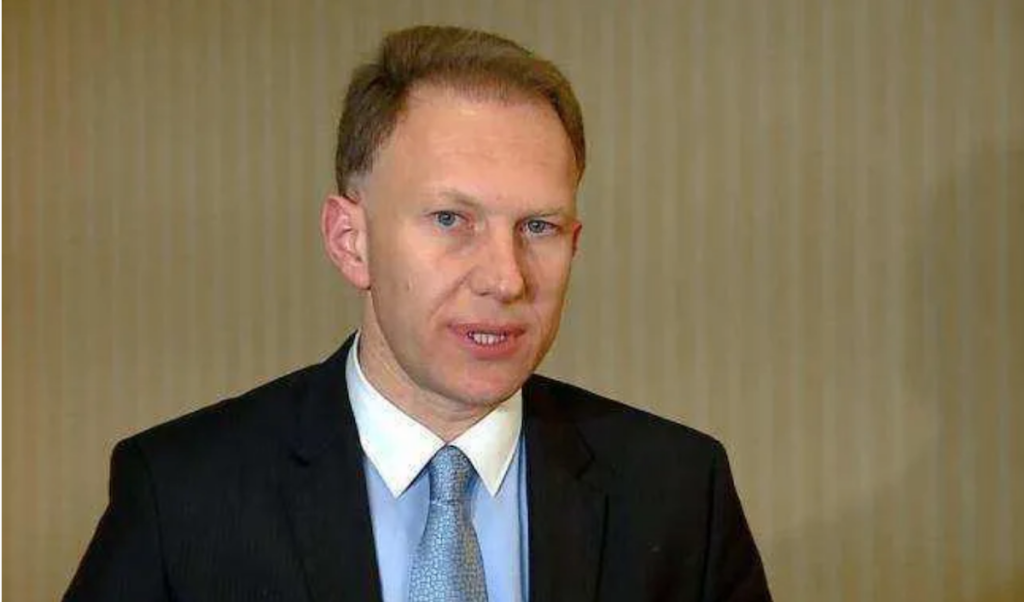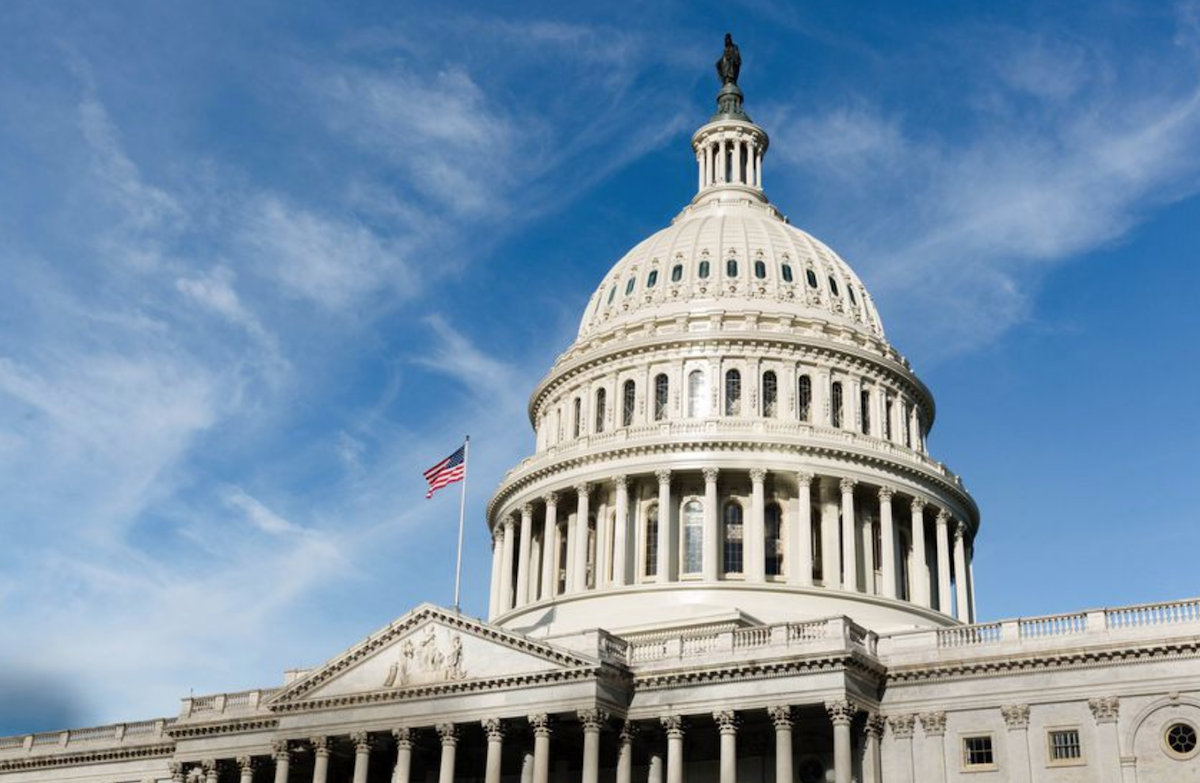Day: May 27, 2024

Veto on the “foreign agents” law
On May 27, one of the staunchest supporters of the Georgian government, businessman Soso Pkhakadze, urged the ruling party not to override the president’s veto on the “foreign agents” law—or to postpone the law’s implementation until January 1, 2025.
 Soso Pkhakadze
Soso PkhakadzeSoso Pkhakadze is one of the businessmen who, on April 29, issued a joint statement in support of this law, which is referred to as the “Russian law” by the Georgian public. At that time, he and other prominent businessmen called on the authorities to ensure the so-called “transparency” of NGOs and media operations.
Pkhakadze is the founder of the Wissol gas station network and, since 2000, has chaired the board of directors of Wissol Group, which includes companies such as Wissol, Smart, Wendy’s, Dunkin’ Donuts, Vianor, and others.
Statement by Soso Pkhakadze
“As a citizen and businessman of Georgia, I feel compelled to once again respond to the events unfolding in our country. Just as in my previous statement, I firmly and unequivocally declare my unwavering support for the country’s commitment to the European and Euro-Atlantic course, which I believe to be the only viable path.
Since a specific compromise solution has not been found, I believe it would be wise to choose one of the two following options.
First option: Tomorrow, the government should postpone the procedure to override the veto. Let’s take some time and use it for further consultations with our strategic partners to avoid harming the foreign policy course guaranteed by the country’s constitution.
The second option: Using existing legal tools and amending the law, set the law’s implementation date for early 2025, say January 1. In this case, the results of the parliamentary elections will determine how acceptable this law is to our population.
Here, I would like to emphasize that both of the above options are based on an analysis of the current situation and the information I have as a businessman.
I hope my sincere opinion will be considered by the relevant authorities, which will help return our country to its normal path of development,” Pkhakadze wrote on LinkedIn.
Francia enviará a sus instructores a Ucrania para formar a militares ucranianos #SupportUkraine #StopRussianWar #defense #defensa #France #Ukrainehttps://t.co/UW6HWltvJR
— Ukrinform-ESP (@esp_ukrinform) May 27, 2024
#Israel Prime Minister Benjamin #Netanyahu says the strike which killed scores of displaced Palestinians in Rafah was a “tragic mishap” Garbage https://t.co/nRMrhQEEhY
— Moeen’s doosra (@pelepele1) May 27, 2024
via @NYTimes #Netanyahu is lying. The attack on #Rafah was deliberate and meant to tell the #ICJ that you and your decision to stop the attack on #Rafah can go to hell. https://t.co/KdCAoLCSRO
— Dr. Mohammad Alramadhan (@mramadan) May 27, 2024
🚨Israeli Prime Minister #Netanyahu:
Yesterday we made a big mistake in #Rafah and we are investigating the matter#Isreal#palestine#RafahtaSoykırımVar#RafahtaSoykırımYaşanıyor#RafafOnFıre#RafahOnFıre#فری_فلسطین pic.twitter.com/xu0bagQHuC— Sardar Waleed Mukhtar (@waleedmukhtar_1) May 27, 2024
In the run-up to the final adoption of Georgia’s “foreign agents” law, the United States prepared to impose sanctions on members of the Georgian Dream party responsible for promoting it and obstructing the country’s Euro-Atlantic integration. Meanwhile, the U.S. State Department announced that it was introducing a new visa restriction policy against a wide range of Georgian officials and their family members, as well as those who participated in the use of violence against protesters on the streets of Tbilisi. The visa restrictions are only the first stage of sanctions pressure on sub-sanctioned persons, which is typically followed by freezing of assets in U.S. jurisdictions and restrictions on financial transactions.
Vakhtang Partsvania is an economist and professor at Caucasus University
Each of these measures requires additional explanation, if only because some representatives of the Georgian Dream claim that no one is afraid of sanctions and even ask to be included in the “honorary register of patriots,” apparently believing that they will cause only minor harm to them and their families. In order to understand the effect of sanctions, it would be useful for the members of Georgian Dream to refer to the long experience of Russian individuals on the sanctions lists.
Asset Freeze
This measure applies to property and property rights, including cash, securities, interests in companies and other property located in the U.S. jurisdiction. This means that a house, apartment, car, or business asset located in the U.S., as well as a current account, deposit, or bank card opened in a U.S. bank, may be subject to the freeze. For example, shortly after the U.K. froze the assets of Russian oligarch and billionaire Mikhail Fridman, he complained that he did not know how to pay for even small expenses, such as cleaning his house abroad. Another sanctioned Russian billionaire, Pyotr Aven, said he did not understand how to survive because “everything we have built over 30 years is now completely destroyed.” The American jurisdiction has a much broader scope than the British one, so a person caught under the asset freeze can say goodbye to his financial assets and property located in Western countries, as well as forget about the possibility of building and developing any business there.
Visa Ban
This ban not only prevents the sanctioned person from entering the United States, but also results in the suspension of visas issued to family members, for example to study at a U.S. university. For example, if a visa ban is imposed on Irakli Garibashvili, the chairman of Georgian Dream, it is likely that he will not be able to visit his son who is studying at the University of Pennsylvania. Since this measure will also apply to his family members, it is likely that Garibashvili’s son will also be forced to suspend his studies there. It should be noted separately that if visas are banned for such Georgian Dream deputies as Aluda Gudushauri, Beka Odisharia or Irakli Chikovani, their US-born and US-citizen children will be directly affected by the very harsh US sanctions legislation, which provides for criminal liability for violations of the sanctions regime. The deputies themselves and their families will no longer be able to visit the United States, even for tourism.
In the context of visa restrictions, it will be useful for Georgian Dream members to familiarize themselves with the experience of another Russian oligarch and billionaire, Oleg Deripaska. Although he was subject to US sanctions in 2018, he nevertheless undertook machinations to circumvent them in order to organize the birth of his two children on US territory, spending hundreds of thousands of dollars. But the machinations were exposed, and Deripaska and his associates, including the arrested American citizen, were charged with conspiracy to evade sanctions, which carries up to 20 years in prison. It is noteworthy that in 2022, 32 criminal cases were filed for violating or circumventing sanctions imposed on Russia. It is also worth recalling that last year the USA imposed visa restrictions on four high-ranking Georgian judges and their families, which became the first case of application of the sanctions mechanism in the history of Georgian-American relations. The measure was so painful for the ruling party that some members of Georgian Dream criticized the U.S. decision and even categorically demanded that it be lifted. At the same time, the parliamentary majority, despite its confidence in the independence and impartiality of the Georgian judiciary, prevented the establishment of a temporary investigative commission to investigate corruption in the judiciary.
Financial Restrictions
This measure denies a sanctioned person access to a significant part of the international financial system. For example, he/she cannot use bank cards that use the U.S. payment systems Visa or Mastercard are blocked, and his/her ability to conduct banking and financial transactions in U.S. dollars is suspended. In addition, because Georgia does not have its own payment system, such as Russia’s MIR or China’s UnionPay, the sanctioned person will not be able to use Visa or Mastercard bank cards, even those issued by Georgian banks, and will face restrictions on accessing bank assets and conducting transactions in Georgia itself.
The painfulness of this measure for the Georgian authorities can be judged by the scandalous story of the imposition of U.S. sanctions in September 2023 against the “Georgian-Russian oligarch”, citizen of Georgia and former Prosecutor General of the country Otar Partskhaladze. Shortly after the sanctions were imposed against him, the National Bank of Georgia denied Partskhaladze access to accounts and banking operations in the country. The next day, however, the bank’s acting president, Natia Turnava, single-handedly reversed her decision under the alleged pressure from the then-leader of Georgian Dream.
Top managers who disagreed with the decision resigned from the bank, and major Georgian commercial banks refused to obey the decision and continued to comply with the sanctions regime. Partskhaladze, in turn, with the assistance of the Georgian Ministry of Justice, expedited the transfer of his Georgian assets (12 properties, including land, residential and commercial premises, and the family church) to his son, after which the Ministry revoked his Georgian citizenship to reduce sanctions risks for Georgia.
It is difficult to assess the financial cost of sanctions, as each case is different. One year after the sanctions were imposed, Deripaska estimated his losses at $7.5 billion, while Fridman recently demanded $15.8 billion for the freezing of his assets in Luxembourg.
***
Being under US sanctions has another very important consequence: huge majority of Western countries, including EU countries, Canada, the UK, South Korea, Japan and a number of others, are traditionally US allies. So we can expect them to share data on the activities of sanctioned individuals in their countries with their U.S. counterparts, and possibly seek to add those individuals to their own sanctions lists. Cases of lifting sanctions are isolated, such as the case of banker Oleg Tinkov, who renounced his Russian citizenship, and are possible only when sanctioned individuals clearly distance themselves from the ruling party and go through complicated court procedures.
Nevertheless, Georgian Dream seems to have decided that it had calculated all these risks well, and faced with the dilemma of refusing to adopt the law on “foreign agents” and being placed on the U.S. sanctions lists, it chose the latter, hoping to retain its power at the cost of slipping into authoritarianism and Russia’s orbit. However, judging by the reaction of the leaders of Georgian Dream to the position of Georgia’s strategic partners – the EU and the U.S., their comments on the Venice Commission’s remarks and accusations against the European Commissioner Varhely, and other similar actions, the ruling party is calculating its moves by no more than one step ahead.

